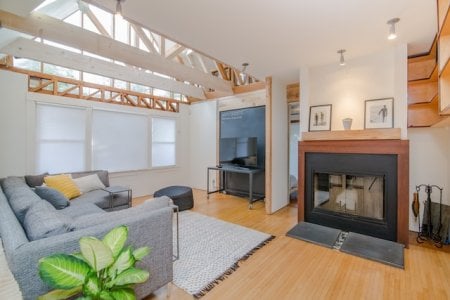NSW government mulls electric appliance subsidy
By
Seia Ibanez
- Replies 18
From getting around in our cars to powering our kitchen and home appliances, electricity is part and parcel of our lives.
It may even be as essential as food and water—and just like those basic needs, the rising cost of utilities is a major concern for anyone with a tight budget.
To help out with that pressing concern, the NSW government is thinking about an incentive for households to electrify their homes.
NSW Treasurer Daniel Mookhey revealed that the state government is considering subsidies that could make the switch to electric appliances a more affordable option for households.
During a budget estimates meeting, Upper House MP Jeremy Buckingham pointed out figures from the Victorian government, which suggested that households that use electric appliances, such as electric stove tops and electric hot water systems, could save anywhere from $1,000 to $1,250 each year.
Mr Buckingham asked Mr Mookhey ‘how significant’ these savings could be for him.

The Treasurer responded that the specific estimates for this claim are not yet available citing modelling gaps. However, he noted that transitioning to electric appliances could give families some much-needed financial relief.
‘Electrification does present the opportunity for there to be cost savings for households,’ Mr Mookhey said.
He added, ‘We are looking at some of the incentive schemes that other states have provided to allow fundamentally working class and middle-income households to get access to these technologies faster than (they would) otherwise.’
In particular, Mr Mookhey said they were looking at the ACT, where new gas connections have been banned since 2023 to have a total transition to renewables by 2045.
Mr Mookhey said, ‘We are certainly looking at whether or not any of these schemes can be adapted to NSW’s context.’
The ACT government implements the Sustainable Household Scheme. Under this, eligible households qualify for a 10-year interest-free loan from $200–$15,000, allowing them to invest in energy-efficient products like electric stove tops, ceiling insulation, and rooftop solar panels.
On the local level, Sydney’s city council voted to consider banning new gas connections for homes and businesses earlier this year. It followed similar actions by Parramatta Council, the Canterbury and Bankstown Council, and the Waverley Council.
In July, Premier Chris Minns ruled out a blanket ban on gas for electricity and said that premature electrification may worsen the state’s supply issues.
‘We’re not pursuing that … the challenges in energy are serious in NSW. I don’t want to lead anyone up the garden path when it comes to that,’ said Minns.
‘We’re facing a situation where we need gas for industry. We’ve also got baseload power that’s coming off in the next few years and not enough renewables coming into the system.’
‘I don’t need another complication or another policy change when the challenges ahead of us are so serious,’ he added.
Recently, the concept of all-electric homes has been becoming popular. A previous article mentioned the environmental and financial benefits of transitioning from using gas in homes to all-electric ones. Read more about the story here.

What are your thoughts about this story? Let us know in the comments below!
It may even be as essential as food and water—and just like those basic needs, the rising cost of utilities is a major concern for anyone with a tight budget.
To help out with that pressing concern, the NSW government is thinking about an incentive for households to electrify their homes.
NSW Treasurer Daniel Mookhey revealed that the state government is considering subsidies that could make the switch to electric appliances a more affordable option for households.
During a budget estimates meeting, Upper House MP Jeremy Buckingham pointed out figures from the Victorian government, which suggested that households that use electric appliances, such as electric stove tops and electric hot water systems, could save anywhere from $1,000 to $1,250 each year.
Mr Buckingham asked Mr Mookhey ‘how significant’ these savings could be for him.

NSW Treasurer Mookhey considered subsidies for households to switch to electric appliances. Credit: Unsplash
The Treasurer responded that the specific estimates for this claim are not yet available citing modelling gaps. However, he noted that transitioning to electric appliances could give families some much-needed financial relief.
‘Electrification does present the opportunity for there to be cost savings for households,’ Mr Mookhey said.
He added, ‘We are looking at some of the incentive schemes that other states have provided to allow fundamentally working class and middle-income households to get access to these technologies faster than (they would) otherwise.’
In particular, Mr Mookhey said they were looking at the ACT, where new gas connections have been banned since 2023 to have a total transition to renewables by 2045.
Mr Mookhey said, ‘We are certainly looking at whether or not any of these schemes can be adapted to NSW’s context.’
The ACT government implements the Sustainable Household Scheme. Under this, eligible households qualify for a 10-year interest-free loan from $200–$15,000, allowing them to invest in energy-efficient products like electric stove tops, ceiling insulation, and rooftop solar panels.
On the local level, Sydney’s city council voted to consider banning new gas connections for homes and businesses earlier this year. It followed similar actions by Parramatta Council, the Canterbury and Bankstown Council, and the Waverley Council.
In July, Premier Chris Minns ruled out a blanket ban on gas for electricity and said that premature electrification may worsen the state’s supply issues.
‘We’re not pursuing that … the challenges in energy are serious in NSW. I don’t want to lead anyone up the garden path when it comes to that,’ said Minns.
‘We’re facing a situation where we need gas for industry. We’ve also got baseload power that’s coming off in the next few years and not enough renewables coming into the system.’
‘I don’t need another complication or another policy change when the challenges ahead of us are so serious,’ he added.
Recently, the concept of all-electric homes has been becoming popular. A previous article mentioned the environmental and financial benefits of transitioning from using gas in homes to all-electric ones. Read more about the story here.
Key Takeaways
- NSW Treasurer Daniel Mookhey said the state is considering subsidies for electric appliances, potentially making it cheaper for households to transition.
- The government recognises that transitioning to electric appliances could bring down soaring energy bills and allow households to save money in the long run.
- The Treasurer is looking at incentive schemes provided by other states, such as the ACT’s Sustainable Household Scheme, which offers interest-free loans for energy-efficient products.
- However, Premier Chris Minns previously ruled out a blanket ban on gas, emphasising the challenges ahead, including the state's energy supply issues.
What are your thoughts about this story? Let us know in the comments below!







